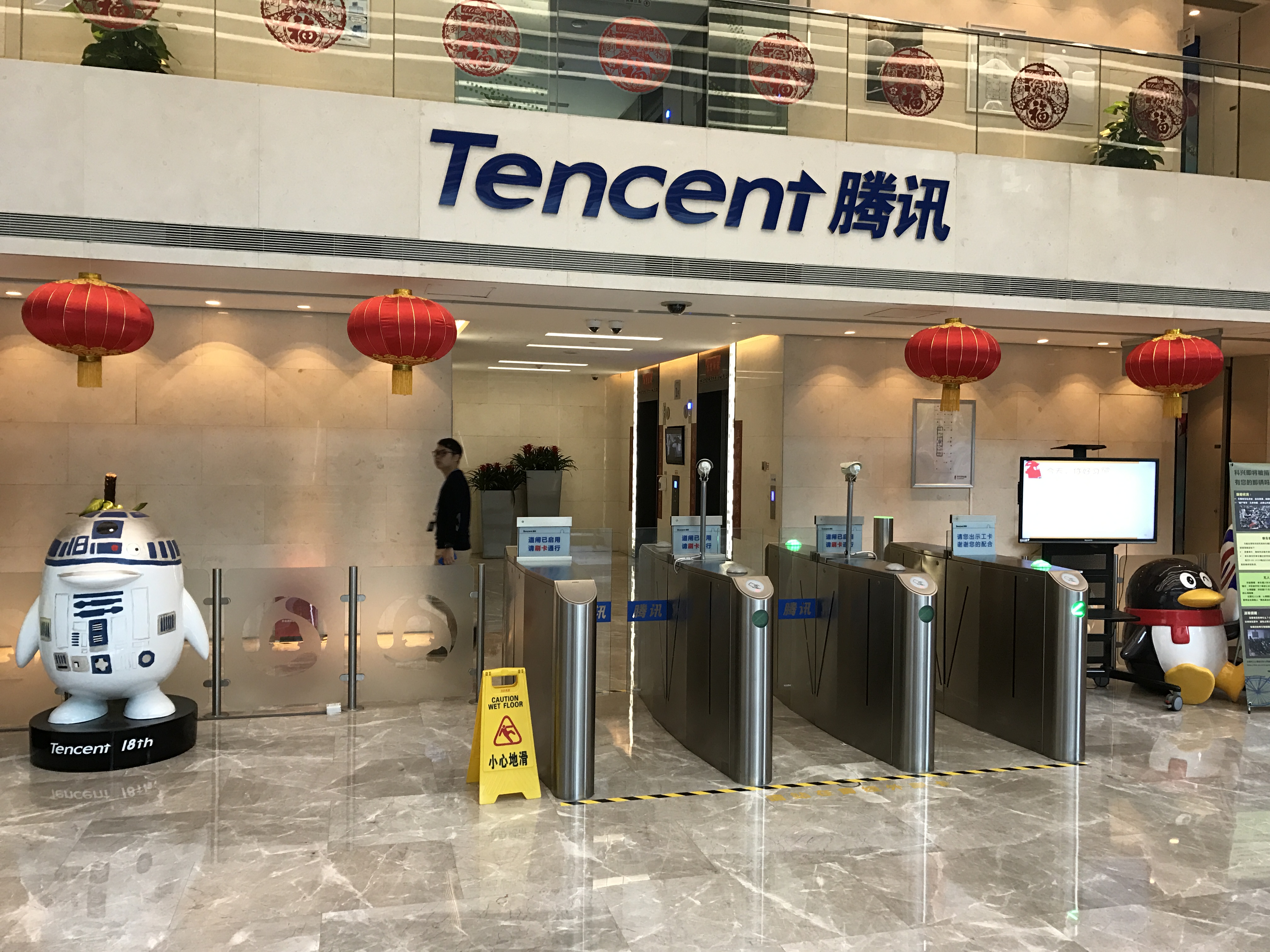China and the U.S. Make Antitrust Moves Against Domestic Tech Giants
Lawfare’s biweekly roundup of U.S.-China technology policy and national security news.

Published by The Lawfare Institute
in Cooperation With

China continues to enhance its scrutiny of domestic Big Tech. On Dec. 14, China’s State Administration for Market Regulation (SAMR) levied its first-ever sanctions on tech companies for failing to preclear past acquisitions made under variable interest entity (VIE) structures. VIEs are ownership structures that allow companies to circumvent limits on foreign investment and to list on foreign stock exchanges. Most large Chinese tech companies—including Alibaba, Tencent, Baidu and ByteDance—use VIEs. According to a recent study, Chinese companies’ VIE structures in the Cayman Islands had a stock market capitalization of $1.7 trillion as of 2017. Earlier this year, the SAMR gave its first official approval of a merger under the VIE structure. The recent fines indicate Chinese regulators’ intent to take VIEs out of their previous regulatory gray zone. Their new legal status may make VIEs more stable for investors but less flexible for executives.
At the same time, regulators in Beijing announced an investigation into Huya’s proposed acquisition of DouYu. Tencent, a prominent shareholder in both companies, stands to benefit from the acquisition. If Huya, a Guangzhou-based live-streaming entertainment platform, is allowed to acquire DouYu, a domestic competitor in the game-streaming industry, the units would have unrivaled market share, potentially owning 80 percent of China’s game-streaming market. The SAMR also plans to “make an example” of Tencent’s proposed $3.5 billion acquisition of the search engine Sogou, according to people with knowledge of the SAMR discussions.
The actions were foreshadowed in the SAMR’s Nov. 10 publication of a draft “Antitrust Guidelines for the Platform Economy Field,” which suggested a more punitive attitude toward tech and a specific focus on VIEs. Some commentators see China’s actions as the beginning of a new era of oversight and constraints on the nation’s growing domestic internet economy.
The United States, too, is taking action against monopolistic practices in its most powerful technology companies. On Dec. 9, the U.S. Federal Trade Commission (FTC) and 40 states accused Facebook of illegally buying up rival companies to quell competition. On Dec. 17, the attorneys general of 38 U.S. states and territories announced the third antitrust suit against Google in as many months. Commentators say this flurry of cases is the most significant antitrust action by the U.S. government since the 1970s.
Analysts in the United States and Europe, which has also cracked down on Big Tech, expect protracted legal battles between companies and regulators. The tone of tech executives in China, however, is conciliatory. Last month, Alibaba’s chairman and CEO Zhang Yong expressed his “gratitude toward regulatory governance.” On Dec. 15, Ant Group chairman Eric Jing appeared “contrite and apologetic” after the collapse of his financial technology giant’s planned initial public offering (IPO). Ant Group’s IPO failed after Chinese regulators issued a slew of new rules following Ant co-founder Jack Ma’s controversial critique of regulators’ oversight of internet companies.
The Wall Street Journal has reported that Ma offered partial public ownership of Ant to Chinese regulators when they met with him on Nov. 2. That possibility may still be on the table. It is not clear, however, that public ownership and management would augment China’s “institutional advantage” or its prowess in science and technology—two of the new “Five Fundamentals” touted since the Central Economic Work Conference.
Chinese Tech Companies Complicit in Facial Recognition Targeting Uighurs
New evidence emerged last week of Chinese technology companies’ involvement in state-sponsored actions against members of the Uighur minority, whose population is concentrated in the autonomous region of Xinjiang. The Chinese government has allegedly detained more than a million Uighurs in Xinjiang. And recent reports indicate that Uighurs in the area have also been forced into labor in the cotton industry.
The Washington Post reported a 2018 collaboration between Huawei and Megvii, a large Chinese artificial intelligence (AI) company, to develop facial recognition software that would send a “Uighur alarm” to Chinese authorities upon spotting a member of the minority Muslim group. Alibaba’s cloud computing group has also publicized software with similar capabilities: the recognition of Uighur and other ethnic minority faces in surveillance video.
Huawei’s “Uighur alarm” feature was first discovered in a public document on the company’s website, which has since been removed. A Huawei spokesperson called the language in the document “completely unacceptable” and “not compatible with the values of Huawei.” The company also stated that the ethnicity detection capability advertised in its facial recognition software was “never used outside a testing environment.”
The negative coverage has led to high-profile resignations. A senior executive of Huawei Denmark, Tommy Zwicky, stepped down after he was unable to explain the reports. Huawei-sponsored French soccer player Antoine Griezmann publicly cut his ties with the company over the revelations.
In a statement, the Chinese Foreign Ministry condemned reporting on technology companies’ involvement as “purely slander” and stated that “China doesn’t go any further than countries in America and Europe” in its use of facial recognition for “social management.”
Other News
FCC Votes Unanimously for Rip-and-Replace of Huawei Equipment
The U.S. Federal Communications Commission (FCC) voted unanimously on Dec. 10 to require the removal of Huawei equipment from U.S. carriers. Both Democratic commissioners joined the three Republicans to support “ripping and replacing” the Chinese manufacturer’s hardware from U.S. telecommunications networks.
FCC Chairman Ajit Pai claimed that using Huawei equipment could facilitate Chinese state-sponsored economic espionage and disruptions of U.S. communications traffic. The ruling will mostly impact telecommunications companies providing service to rural areas of the country. The FCC estimates that the total cost of equipment replacement will be $1.8 billion, $1.6 billion of which will be reimbursable.
The FCC has also initiated a process to potentially revoke China Telecom’s license to operate in the United States over “significant concerns” that the telecommunications company’s compliance with Beijing’s information requests could jeopardize national security.
The bipartisan support for the “rip-and-replace” rule signals that the Democratic-controlled House—and possibly President-elect Biden—will likely maintain the Trump administration’s hostility toward Huawei’s presence in the United States.
Trump Administration Adds SMIC to Entity List; U.S. Indices Remove Chinese Stocks
On Dec. 18, the Trump administration added dozens of Chinese companies, including Semiconductor Manufacturing International Corporation (SMIC), China’s top chip manufacturer, to the U.S. Commerce Department’s Entity List. In issuing the new order, the Commerce Department cited concerns over China’s “military-civil fusion doctrine.” U.S. companies are banned from supplying components to companies on the Entity List unless specifically cleared by the Commerce Department. Another company sanctioned in Friday’s order was dronemaker DJI, due to its involvement in high-tech domestic surveillance in China.
On Dec. 15, MSCI Inc., a large U.S. investment index compiler, opted to strip its index of seven blacklisted Chinese stocks.The removals come one week after rival provider FTSE Russell removed a number of the same companies from its indices. On Nov. 12, the Trump administration issued an executive order preventing Americans from investing in those companies and dozens of others suspected of assisting the Chinese military. In addition to SMIC, the China National Offshore Oil Corporation, China’s third-largest national oil company, will also be deleted from MSCI’s index. MSCI’s list will not be finalized until Dec. 30. According to one report, Treasury Department officials are moving to exclude subsidiaries from the regulation’s coverage in an attempt to blunt its impact.
Zoom Executive Faces Criminal Charges for Censorship Conspiracy
U.S. federal prosecutors, relying on information gathered by the FBI, have brought criminal charges against Xinjiang Jin, a China-based Zoom executive. Jin serves primarily as a liaison between the videoconferencing platform and Chinese law enforcement and intelligence services. The U.S. government claims that Jin monitored Zoom’s video system for discussions of political and religious topics deemed sensitive by Chinese censors and shut down video meetings regarding the Tiananmen Square protests in May and June. According to the complaint, the meetings included Chinese dissidents residing in the United States. The complaint also alleges that Jin gave the names, email addresses and other personal information of Zoom users inside and outside of China to the Chinese government.
Zoom stated that Jin gave the Chinese authorities data on “fewer than ten individual users” based outside China. Prosecutors dubbed the company’s relationship with Beijing a “Faustian bargain.” In a company blog post, Zoom has contended that several of the charges of data-sharing were factually unsupported. Jin lives in China and is not in U.S. custody. The charges against Jin include conspiracy to commit interstate harassment and unlawful conspiracy to transfer a means of identification.
Espionage Makes Headlines
A recent investigation by Foreign Policy indicates that from 2010 to 2012 the Chinese government surveilled CIA operatives in China and then hacked the Office of Personnel Management (OPM), unveiling U.S. infiltration of Chinese private and public operations. The author promises to show in subsequent articles that China used this data to expose the identities of American officials in covert operations in Africa and Europe.
The report comes just weeks after revelations that Fang Fang, a Chinese spy who operated largely out of California, developed ties with U.S. Rep. Eric Swalwell, among other politicians.
On Dec. 19, Sen. Ted Cruz cited espionage as one justification for his last-minute block of an attempt by fellow senators to grant special refugee status eligibility to Hong Kong dissidents. Cruz claimed that the relaxed immigration standard would allow China to send spies to the United States.
Commentary
Over the past 15 months, the Brookings Institution, in collaboration with the Center for International Security, the Berggruen Institute and the Minderoo Foundation, has supported a series of dialogues with Tsinghua University on how the United States and China can collaborate to reduce the security risks associated with artificial intelligence. The leaders of those dialogues are now publishing their respective reflections in Noema magazine.
ProPublica and the New York Times have issued a joint report on how China mobilized its army of digital censors and trolls to monitor and control the spread of negative domestic opinion surrounding the coronavirus.
Boston University’s Global Development Policy Center produced a new database tracking China’s overseas development spending between 2008 and 2019. The China Neican blog also provides analysis on Chinese overseas development spending and notes that loans issued by China’s two development banks had collapsed from an annual peak of $75 billion in 2016 to just $4 billion by 2019.
Erica D. Borghard, a senior fellow with the New American Engagement Center at the Scowcroft Center for Strategy and Security at the Atlantic Council, writes for the Council on Foreign Relations about the potential for a revived U.S.-EU partnership and its implications for the U.S.-China economic and technological rivalry.
A report from the Center for Strategic and International Studies (CSIS) assesses the competitiveness of Chinese cities against other global cities.
A study from the Rand Corp.’s Center for Asia Pacific Policy outlines indicators to measure China’s propensity and ability to innovate in the 21st century.






